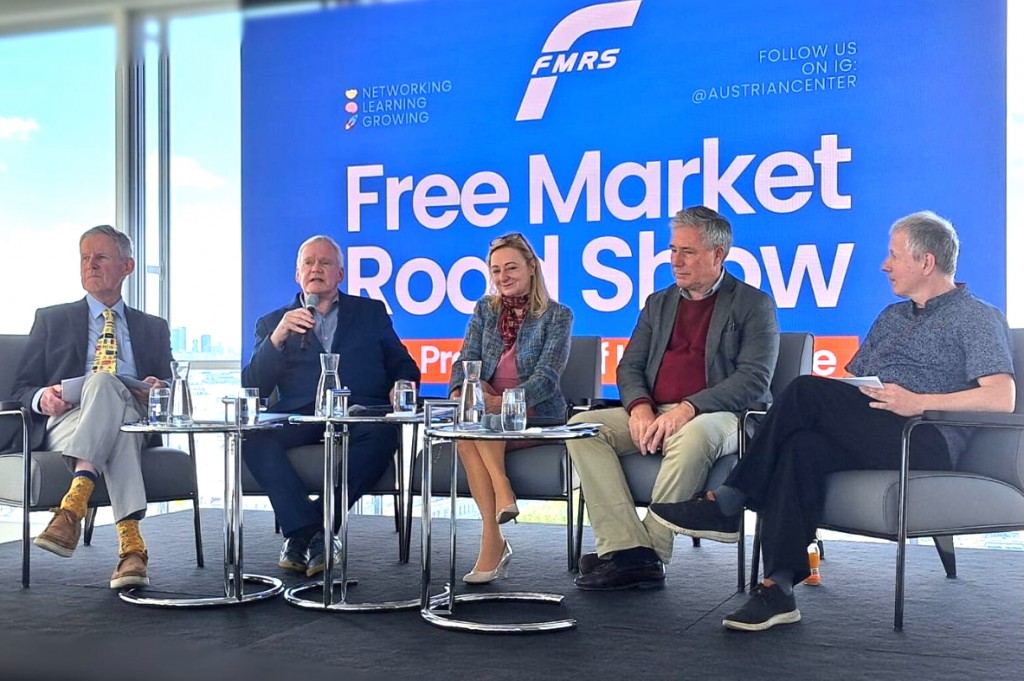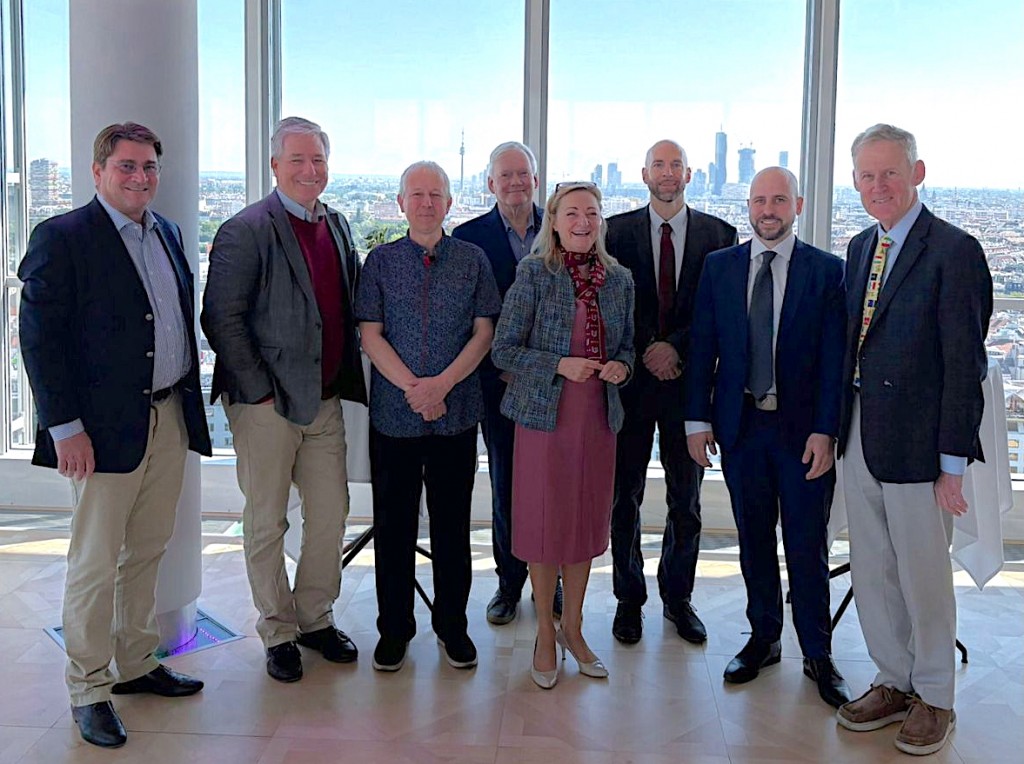 RNH Academic Director, Professor Emeritus Hannes H. Gissurarson, was one of the speakers at the Vienna meeting on 12 May 2025 of the Free Market Road Show, organised by the Austrian Economics Center in Vienna. The meeting took place at the Ringturm, a tower overlooking Vienna. On behalf of the Vienna Insurance Group which hosted the meeting, Peter Höfinger welcomed the participants. The first session was held in German and was about the Austrian budget. Subsequently, at 11.30 in the morning, a panel discussed Hayek’s relevance, public debt and monetary and fiscal constraints. The panel participants were Dr. Eamonn Butler of the Adam Smith Institute, Professor Hannes H. Gissurarson of the University of Iceland, Dr. Barbara Kolm of the Austrian Economics Center and Austrian MP, Dr. Daniel Mitchell of the Freedom and Prosperity Institute, and Professor Alexander Tokarev of Northwood University.
RNH Academic Director, Professor Emeritus Hannes H. Gissurarson, was one of the speakers at the Vienna meeting on 12 May 2025 of the Free Market Road Show, organised by the Austrian Economics Center in Vienna. The meeting took place at the Ringturm, a tower overlooking Vienna. On behalf of the Vienna Insurance Group which hosted the meeting, Peter Höfinger welcomed the participants. The first session was held in German and was about the Austrian budget. Subsequently, at 11.30 in the morning, a panel discussed Hayek’s relevance, public debt and monetary and fiscal constraints. The panel participants were Dr. Eamonn Butler of the Adam Smith Institute, Professor Hannes H. Gissurarson of the University of Iceland, Dr. Barbara Kolm of the Austrian Economics Center and Austrian MP, Dr. Daniel Mitchell of the Freedom and Prosperity Institute, and Professor Alexander Tokarev of Northwood University.
In his contribution, Gissurarson recalled a dinner he and other members of the Hayek Society at Oxford University had with Hayek at the Ritz in London in the spring of 1985. A group of musicians moved between tables and played the tunes the guests would choose. Gissurarson whispered to them that they should play the tune ‘Vienna: The City of my Dreams’ by Rudolf Sieczyński. When Hayek—86 years at the time—heart the tune, he smiled broadly and began to sing softly in German.
Gissurarson said that indeed a distinction could be made in terms of dreams, between conservative liberalism on the one hand and socialism on the other hand. Conservative liberals believed in the innumerable little dreams that people formed about their lives—to find a job, found a family, set up a company—so that the task was to try and facilitate those dreams. The socialists believed however in the one big dream of reconstructing society according to some blueprint which always ended in failure, the big dream becoming a nightmare.
According to Gissurarson, the reason why the attempt to impose one big dream on society inevitably failed was that the socialists did not understand Hayek’s profound insight about dispersed knowledge, each individual only possessing a fraction of total knowledge. There were two ways of using this knowledge without having it: in time is was to rely on tradition, the accumulated knowledge of generations, the ‘wisdom of our ancestors’; in space it was to use the price mechanism of the free market to discover where one’s special abilities could be put to best use.



